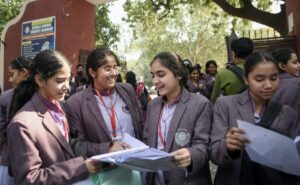Developing Countries Face Stiff Economic Headwinds, World Bank Chief Says

WASHINGTON—The head of the World Bank warned that developing nations face an extremely challenging near-term outlook, as the sharp slowdown in global growth raises the risks of a prolonged recession.
Speaking Wednesday at Stanford University,
David Malpass
said the challenges for the developing world are shaped by higher food, fertilizer and energy prices caused by the war in Ukraine, as well as rising interest rates, currency depreciation and capital outflows, which could result in a shortage of funds needed to support people’s lives and economic activities.
“The human consequence of these overlapping crises is catastrophic,” he said.
The World Bank and the International Monetary Fund plan to host meetings next month in Washington to discuss the global economic slowdown and related issues. Finance officials and central bankers from around the world are preparing to gather amid high inflation, rising interest rates, increasing market turbulence and the effects of Russia’s invasion of Ukraine.
While growth prospects are deteriorating sharply for wealthier economies including the European Union and China, Mr. Malpass said, developing countries confront additional risks: Policies adopted by advanced economies to address inflation and economic slowdown could leave insufficient capital for poorer nations.
“If current fiscal and monetary policies become the new normal, it implies heavy absorption of global capital by advanced governments, prolonging the under investment in developing countries and hampering future growth,” he said.
Mr. Malpass said underinvestment in the developing world started after the 2008 global financial crisis, with a shift in monetary policies of advanced economies toward zero interest rates and massive bond purchases. Those easy-money policies in the U.S., Europe and Japan have guided capital to wealthy corporations and people in advanced economies, he said, fueling asset prices there while investments in developing countries stagnated.
“A pressing danger for the developing world is that the sharp slowdown in global growth deepens into global recession,” he said.
Risks of a recession are growing.
Economic activity in Europe dropped sharply in September. The U.K.’s central bank started emergency purchases of government bonds on Wednesday to stabilize its debt market and stave off a pension crisis.
The World Bank on Monday cut its forecast for growth this year in China, where the economy is struggling with a real-estate crunch and the government’s zero-tolerance approach to Covid-19.
The war in Ukraine will cost the global economy $2.8 trillion in lost output by the end of next year, the Organization for Economic Cooperation and Development said Monday.
World Bank economists said in a Sept. 15 report that the global economy would likely grow 2.9% this year, down from 5.7% last year. They expect growth to slow further to 2.4% next year, before recovering to 3% in 2024.
Among the hardest-hit nations are emerging-market and developing economies that rely on increasingly costly imported fuel and commodities. Many were already struggling with large debts following pandemic-linked economic slumps and a period of easy money fueled by low interest rates.
Now, slowing growth, rising U.S. interest rates and the strengthening U.S. dollar are further squeezing these nations, stoking worries about the potential for a debt crisis in low- and middle-income countries.
Yields on emerging-market debt have soared in recent months as investors desert them in favor of assets seen as safer. Scores of nations, including Sri Lanka, Pakistan, Egypt, and Argentina have turned to the IMF for help, pushing the international financial institution’s outstanding loan amount to record levels.
As the IMF and the World Bank try to respond to global economic troubles, Mr. Malpass faces a problem of his own, coming under criticism for his comments on climate change.
Climate activists have called on Mr. Malpass to resign over his response last week to questions about whether burning fossil fuels has led to global warming. At a public discussion of climate issues hosted by the
he declined to directly answer, saying, “I am not a scientist.”
He has since sought to clarify his position, stating that greenhouse-gas emissions do cause climate change. Mr. Malpass, a nominee of former President Donald Trump, said he isn’t resigning.
At an all-hands staff meeting at the bank on Tuesday, Mr. Malpass apologized for his “poor performance” at the climate discussion, according to a person familiar with the situation. He made similar remarks on Monday at his meeting with the World Bank Board, this person said.
In his speech Wednesday, Mr. Malpass emphasized the World Bank’s active role in addressing the climate crisis, noting that it is the largest single funder of climate-related finance in the developing world and a leader in areas like climate diagnostics, methane-emission reduction and innovative climate financing.
Write to Yuka Hayashi at yuka.hayashi@wsj.com
Copyright ©2022 Dow Jones & Company, Inc. All Rights Reserved. 87990cbe856818d5eddac44c7b1cdeb8









